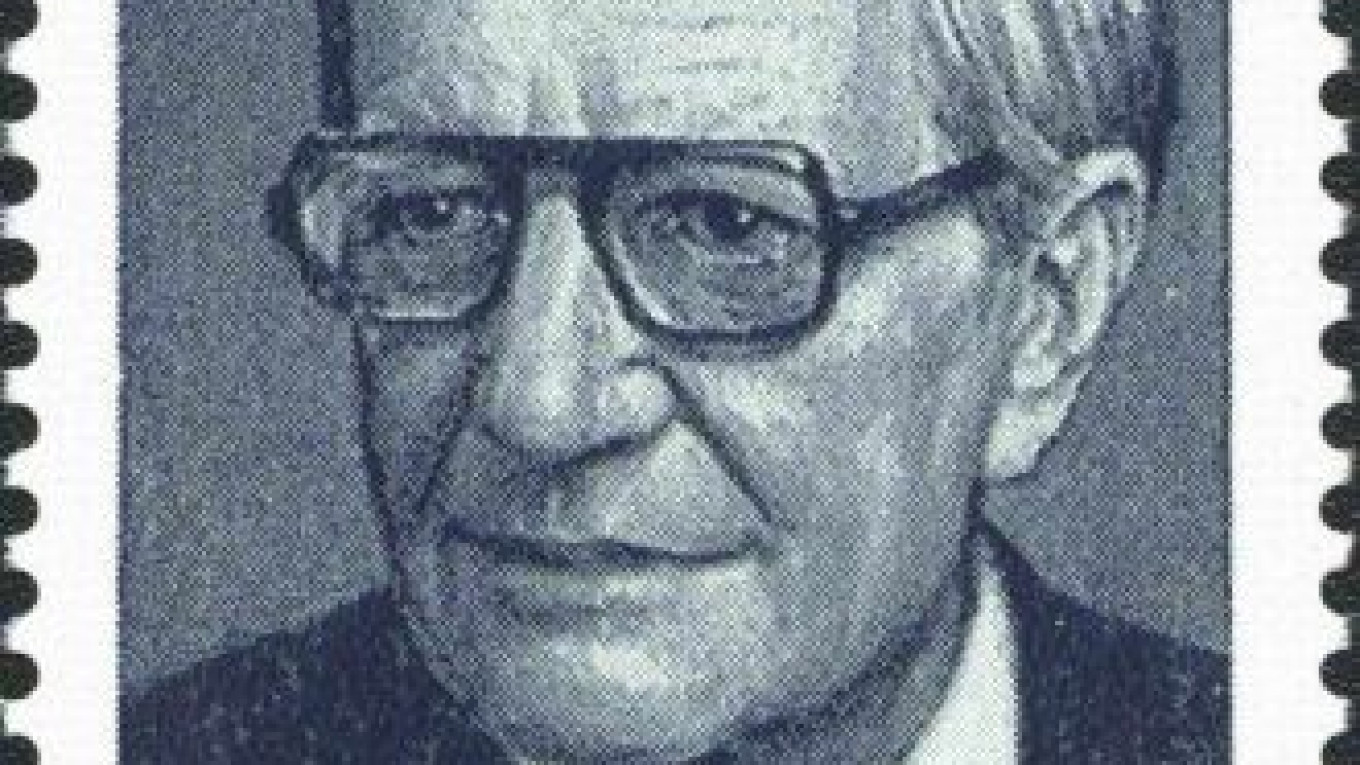That quintessential Cold War year of 1963 has been featuring prominently in the Britain recently. Andrew Lloyd Webber's new musical "Stephen Ward" revisits the Profumo affair. The BBC has just aired "Strange Days: Cold War Britain" and the 50th anniversary of Kim Philby's defection to Moscow was the subject of a 90-minute documentary, "The Spy Who Went Into The Cold," broadcast on BBC TV on Nov. 18.
Philby was part of a group labelled the "Cambridge Spies" along with Donald Maclean, Guy Burgess and Anthony Blunt. All rose the through the ranks of the British diplomatic and intelligence services, and all had been recruited to spy for the Soviet Union during the 1930s. However, it was Kim Philby who was the most significant of all these.
The Daily Beast on July 2 and The New York Review of Books on Aug. 31 made comparisons between Edward Snowden and Philby. It is ironic that Snowden's political asylum in Moscow in 2013 comes exactly 50 years after Philby discreetly left his posting in Beirut on a Soviet freighter and re-emerged in Moscow. Other senior figures have sought to draw parallels between the National Security Agency whistleblower and the Cambridge spies. In May, Snowden passed information to The Guardian about surveillance programs, including the NSA's Prism and GCHQ's Tempora operations. 58,000 of the 200,000 documents Snowden downloaded were British. Sir David Omand, GCHQ's former head, speaking to The Times in October, declared: "It is the most catastrophic loss to British intelligence ever, much worse than Burgess and Maclean."
Philby was 22 years old when he was recruited by the NKVD at university during the 1930s. Philby's disillusionment and embracing of communism was born out of the depression of the 1930s, when communism was not seen as the threat it became after World War II.
Philby started passing information to the Soviets during the war. This continued during his time as British intelligence chief at the British Embassy in Washington DC between 1949 and 1952 and, possibly, during his time in Beirut. Philby received an OBE in 1946, which was revoked in 1965.
When Edward Snowden arrived on an Aeroflot flight in Moscow during July, it was greeted with worldwide attention. When Philby slipped out of Beirut in January 1963, it was secretly onboard on a Soviet freighter. In March of that year, a small piece in The Times reported his disappearance. On July 1 of that year, it was revealed in a statement to the House of Commons that Philby had been a KGB double agent. Not until a Sunday Times investigation in 1967 did it emerge that Philby had been a double agent for 30 years.
Dominic Sandbrook is a leading British historian with a specific knowledge of the Cold War. His three-part series "Strange Days: Cold War Britain" recently aired on the BBC, and he explained the reason behind Philby's defection being kept secret was that 1963 was the year of the Profumo scandal and the Vassal spy case, so the government was sensitive to charges that they had been negligent in rooting out traitors.
Snowden is not a defector as such — more a whistleblowing asylum seeker. Philby's greatest damage would have been done during his time as British intelligence chief in Washington, where he would have had access to the highest level MI6 and CIA intelligence. Snowden never rose above the level of IT security at the CIA and had a single posting to Geneva in 2007 under cover of being a diplomat. He then went on to work as an NSA contractor.
Sandbrook says as individuals Philby and Snowden could hardly been more different. "Philby was so well connected, so suave, such an establishment figure. Snowden was not a fully paid-up member of the intelligence establishment. He is much younger, of course, idealistic. Philby was ideological, but there was a kind of cynicism to Philby which I do not think is there with the Snowden case."
He feels, also, that Snowden's story has less public traction than the Philby story. "The Philby story and the story of the Cambridge traitors resonated with the public. They loved it, they enjoyed reading about it — the theme of corruption in high places, also treachery at the top was a very intoxicating one for newspaper readers. The Snowden story feels very different: he is a very young man, idealistic … he is a whistleblower, in a sense, rather than a traitor. The differences are striking rather than any similarities."
What does unite the two is that they both ended up in the same place, Moscow, which Sandbrook sees as a reflection of the fact "in the last 20 years or so, or maybe 10 years, that Russia has reasserted itself as a counterpoint to the West."
From the time of Philby's arrival in Moscow, he was little trusted by the Soviet authorities. The defector was never made a KGB colonel. There were stories of heavy drinking, and at least one attempted suicide.
"The story goes that he was isolated, under house arrest," says Sandbrook. "The story of Philby after he goes to the Soviet Union is a pretty miserable one, definitely more LeCarre than Fleming — booze, affairs, general grumpiness and dissatisfaction."
Philby would never live to see the collapse of the ideal he had devoted his life too. He died in May 1988 and "even someone as practised in self-delusion as Philby would surely have realized that the writing was on the wall after the Soviet experiment."
There is one more little irony that links Philby and Snowden — Philby was an Observer journalist. The Observer is nowadays the sister paper of The Guardian, which first published the Snowden revelations.
Contact the author at artsreporter@imedia.ru
A Message from The Moscow Times:
Dear readers,
We are facing unprecedented challenges. Russia's Prosecutor General's Office has designated The Moscow Times as an "undesirable" organization, criminalizing our work and putting our staff at risk of prosecution. This follows our earlier unjust labeling as a "foreign agent."
These actions are direct attempts to silence independent journalism in Russia. The authorities claim our work "discredits the decisions of the Russian leadership." We see things differently: we strive to provide accurate, unbiased reporting on Russia.
We, the journalists of The Moscow Times, refuse to be silenced. But to continue our work, we need your help.
Your support, no matter how small, makes a world of difference. If you can, please support us monthly starting from just $2. It's quick to set up, and every contribution makes a significant impact.
By supporting The Moscow Times, you're defending open, independent journalism in the face of repression. Thank you for standing with us.
Remind me later.






